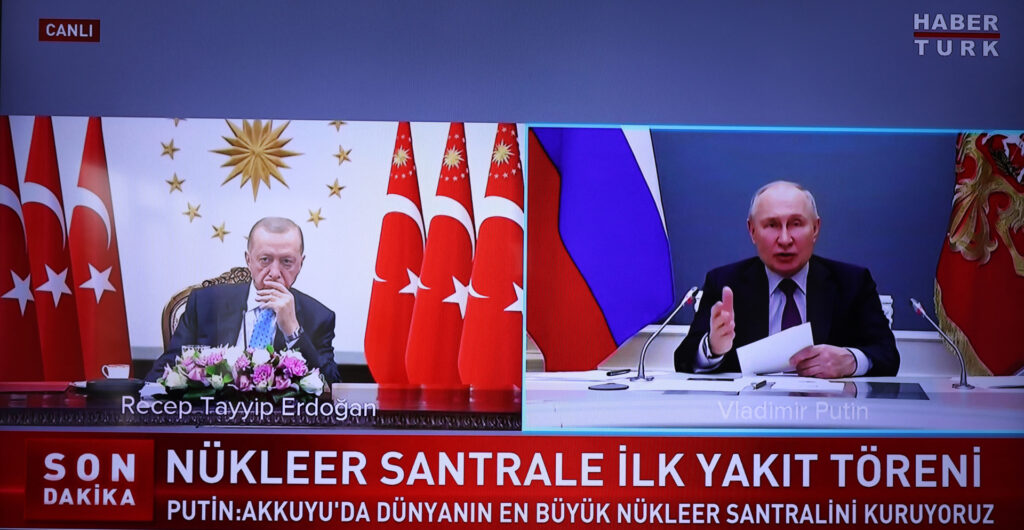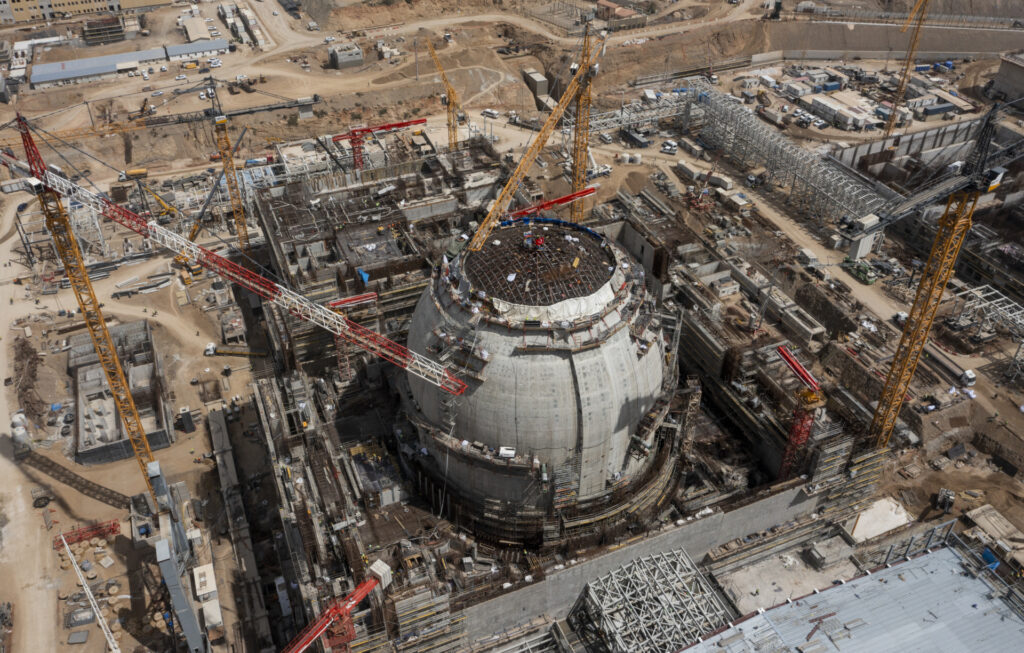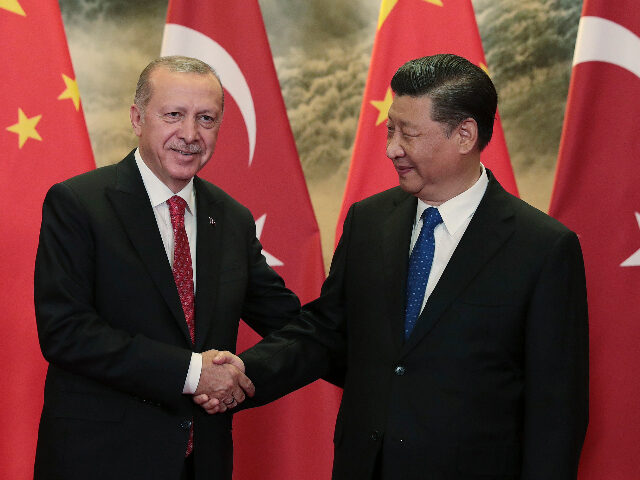Turkish Energy Minister Alparslan Bayraktar said on Friday that talks with China to construct a new nuclear power plant would be completed “in a few months’ time,” after which ground could be broken on Turkey’s third nuclear plant.
Turkey is in a curious position regarding nuclear power. The government is clearly interested in beefing up its capabilities in the hope of reducing the $80 billion it spends on importing energy every year.
None of Turkey’s three nuclear plants are operational yet. The first one, built by Russia’s state energy company Rosatom at Akkuyu on the Mediterranean coast, is a $20 billion project that should generate five gigawatts (GW) of electricity when fully operational in 2025.
Russian President Vladimir Putin joined Turkish President Recep Tayyip Erdogan for the Akkuyu inauguration ceremony in April, during which nuclear fuel was ceremonially loaded into the first reactor on the site. Putin hailed Akkuyu as “the largest nuclear construction project in the world.”

Turkish President Recep Tayyip Erdogan (L) and Russian President Vladimir Putin (R) speaking over a video link for the opening of the Akkuyu Nuclear Power Plant held in Mersin on April 27, 2023. (ADEM ALTAN/AFP via Getty Images)
“This is a flagship project. It brings both mutual economic benefits and, of course, helps to strengthen the multi-faceted partnership between our two states,” Putin said.
International Atomic Energy Agency (IAEA) Director-General Rafel Mariano Grossi also hailed the Akkuyu project as a major step toward environmentally sensitive power generation.
“This enormous undertaking is a testament to Turkey’s economic and technological progress, and it is a manifestation of the confidence with which Turkey is moving into the future,” he said.
“Nuclear power plants like Akkuyu are built because we know a prospering economy will need them. And they are built because we are committed to meeting the climate goals that will make this prosperity sustainable,” he said.

An aerial view of the Akkuyu Nuclear Power Plant (NPP) construction site in Mersin, Turkey, on April 19, 2023. (Ercin Erturk/Anadolu Agency via Getty Images)
Erdogan thanked Putin for Russia’s support at the Akkuyu inauguration in April and said Turkey would “take steps to build a second and a third nuclear power plant in Turkey as soon as possible.” Those steps will not necessarily be taken with Russia, however.
Turkey’s second plant is planned for the Black Sea province of Sinop, with comparable generating capacity and price tag, but Rosatom is only one of the bidders for the project. South Korea’s Korea Electric Power Corp. (KEPCO) has also submitted a proposal at the request of the Turkish government.
The third plant seems likely to be constructed by China.
“We’ve been in talks with a Chinese company for a very long time, so we will be able to fill the gaps and strike a deal soon with China for the nuclear power program,” Bayraktar said Thursday.
“Turkey’s priority in this regard is more technology transfer and localization,” he said.
The nuclear energy minister said a Chinese delegation has already visited the site of a proposed third reactor in Kirklareli, a city close to the borders of Greece and Bulgaria.
A corporate source close to the negotiations told Nikkei Asia on Friday that if the Turkey-China deal is finalized, “it will become the single largest investment of China abroad.”
A third nuclear plant similar to the first two would only bring Turkey up to 15GW of capacity, 5GW short of its goal. Bayraktar said the other 5GW could come from small modular reactors (SMR), a new technology that envisions quickly building a number of small reactors close to high-power-consumption facilities like factories or hospitals.
“We can add 5,000 megawatts of small modular reactors to our system by 2050,” Bayraktar anticipated.
“We are planning 42,000 megawatts of solar, 18,000 megawatts of wind, and 5,000 megawatts of offshore wind power plants by 2035,” he added.
The Bulletin of the Atomic Scientists cautioned in February that Russia will probably end up with outsized influence over Turkey’s nuclear power industry — even if South Korea wins the bid for the second plant — because the Akkuyu nuclear plant is actually owned by Rosatom, which has exclusive rights to supply and maintain it.
The bidding process for that first plant wound up giving Rosatom a sweetheart deal in 2010 because Turkey’s five previous efforts to corral a partner for nuclear energy were failures. These failures were not just a matter of other nuclear firms finding Turkey’s offers unattractive. Western governments were also worried about Turkey diverting nuclear power technology to build weapons or having its nuclear technology stolen by terrorists. At one time, Turkey was considered the most likely of 30 countries seeking nuclear power to divert peaceful energy technology for military use.
The Bulletin of the Atomic Scientists warned:
The model used to develop the Akkuyu nuclear power plant makes Turkey heavily dependent on Russian technology. With Moscow having a record of using its energy assets for coercion, the future of the nuclear cooperation between Turkey and Russia may be the real issue.
Erdogan, an authoritarian Islamist nationalist, has often expressed frustration that Turkey is not allowed to join the nuclear weapons club. In 2019, he complained to the U.N. General Assembly that Turkey’s lack of nuclear weapons relegates it to second-class status among world powers.
“The inequality between nuclear states and nonnuclear states is enough to undermine global balances. It bothers us, like anyone else, that weapons of mass destruction are used as leverage in every crisis instead of their total elimination,” he said. “Nuclear power should either be forbidden for all or permissible for everyone.”

COMMENTS
Please let us know if you're having issues with commenting.